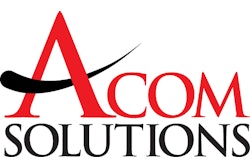Benefits from open, content-neutral technology infrastructure
New York — May 12, 2004 — Through a program designed to empower teachers and administrators with the information they need, the Pittsburgh Public Schools (PPS) has successfully launched a Managed Learning System (MLS) through the deployment of a suite of software modules developed by SchoolNet Inc., a provider of data-driven decision-making solutions for K-12 school districts.
PPS said it is already reaping the benefits of the newly established system. In the past, for example, PPS didn't receive scores from state tests administered in the spring until October or November. In 2003, with an efficient, interoperable MLS-compliant technology architecture, adequate yearly progress (AYP) reports were in place before summer was over.
"My responsibility is to give teachers a set of tools that help them identify the differentiated learning opportunities that will facilitate the individual remediation and accelerated learning needs of each student," explained Elbie Yaworsky, chief technology officer for PPS. "Using MLS as a flagship architecture and deploying SchoolNet's software modules are very cost-effective investments in technology dollars."
MLS is an industry standards-based technology environment that enables all elements of an educational information technology (IT) system to work together in an integrated environment. It embodies industry standards such as SIF (Schools Interoperability Framework), A2A (Align to Achieve), and GEM (Gateway to Education Materials).
According to Yaworsky, SchoolNet proved a good fit for PPS because its approach adheres to the MLS open, content-neutral philosophy and its solutions are already SIF certified, ensuring flexibility and interoperability. SchoolNet tools also reflect the four elements of the MLS model — accountability, access, alignment and assessment — to help the district meet the critical mandates of the No Child Left Behind Act (NCLB).
"Modularity is critical to us," explained Yaworsky in the case study "Pittsburgh Schools Commit to Managed Learning System (MLS) Architecture to Enhance Student Academic Achievement," which was published by Intel as part of its Model School Program. "We looked at solutions other than SchoolNet, but they were really monolithic, and there's no easy way to do just one thing. You have to do everything at one time and school systems just can't do everything at one time."
"Cutting-edge districts like Pittsburgh have realized that curriculum selection should not drive their choice of technology platforms, and that their choice of a technology platform should not drive their curriculum selection," said Jonathan Harber, president and CEO of SchoolNet, in the case study. "Pittsburgh's implementation of SchoolNet as a Managed Learning System allows them to have the flexibility of a content-neutral, open standards environment for teaching and learning. SchoolNet's unifying technology platform allows the district to deploy whatever curriculum, assessment and remediation it chooses, all within one integrated environment."
Pittsburgh Public Schools also invested in a back-end system powered by Intel Xeon processors.
PPS serves approximately 36,000 K-12 students in 93 schools with an operating budget of $480 million for the 2003 through 2004 academic year.







